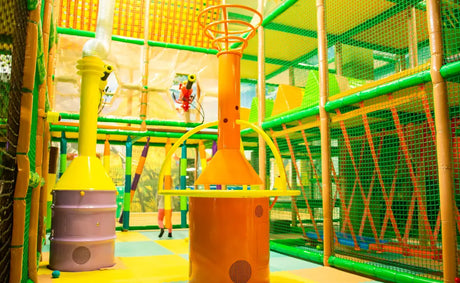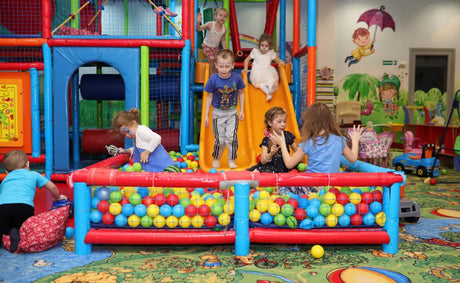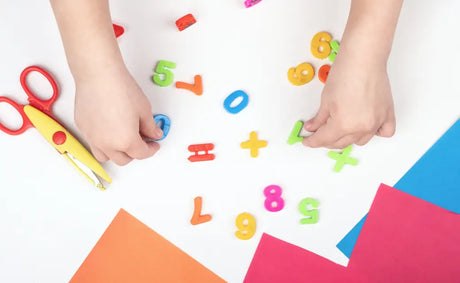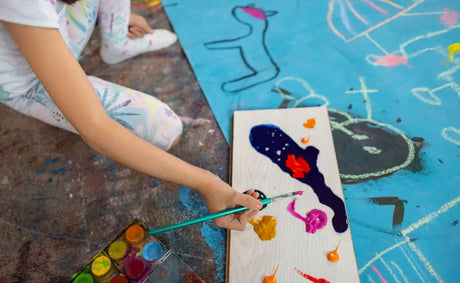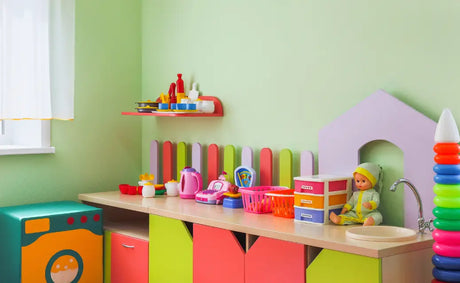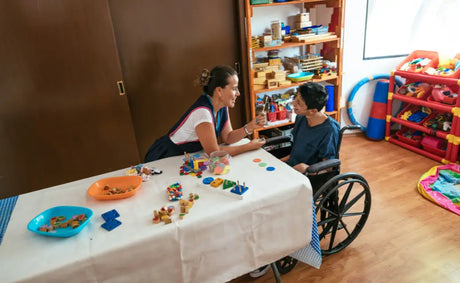Parent-teacher conferences are important because they allow parents and teachers to talk and work together for the child's learning. These meetings focus on discussing the child's progress, challenges, and successes to help them do their best in school. The main goal is to build a strong partnership between home and school to support the child’s growth.
Parents and teachers should both be ready for the meeting to make it useful. Parents can talk about what their child is good at and what they need to work on, while teachers can tell them what they’ve noticed in class and on tests. Parent-teacher meetings can help kids do well in school if you set clear goals and talk openly.
1. Pre-Conference Preparation for Teachers

Effective parent-teacher conferences start with thorough preparation. Here’s how teachers can ensure a productive meeting:
Review Student Records and Performance
- Academic Records: teachers should carefully review the student’s grades, assignments, and test scores. This helps in providing a detailed picture of the student's academic progress and areas that may need improvement.
- Behavioral Notes: It’s also important to go through any notes on the student’s behavior and past communications with parents. This background information helps us understand and support the student's learning and behavior.
Prepare Discussion Points and Questions
- Discussion Topics: This includes what the student is good at, where they might need help, and any important successes or issues. Preparing these points in advance ensures that all important aspects of the student’s progress are covered.
- Questions for Parents: Crafting questions that can help gather insights from parents is crucial. For example, asking if anything has changed at home that could affect the student's behavior or performance can be helpful. Also, asking about the student’s interests and any worries the parents have can guide the conversation and help create better support.
Arrange a Comfortable Environment
- Meeting Space: Make sure the seating is set up so people can talk easily and there are few distractions. A comfortable space helps both parents and teachers feel at ease and encourages a more productive discussion.
2. Pre-Conference Preparation for Parents
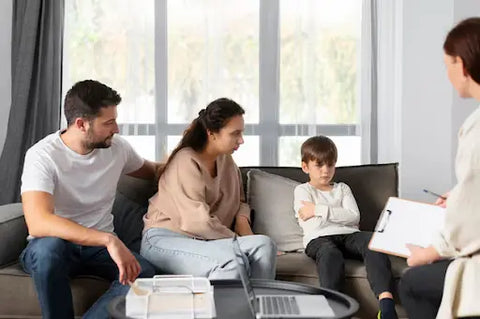
To make the most out of a parent-teacher conference, preparation is key. Here’s how parents can get ready:
Gather Observations and Concerns
- Reflect on Your Child’s Behavior: Take some time to think about your child's behavior and academic performance at home. Note any specific concerns or issues you’ve observed, such as difficulties with certain subjects or changes in behavior.
- Compile a List: Write down your observations and any questions you want to discuss. This will help ensure that you cover all relevant topics during the conference and make the conversation more productive.
Review Schoolwork and Feedback
- Examine Recent Assignments and Grades: Check your child’s recent schoolwork, grades, and the teacher’s feedback. This will give you a clear picture of their current academic standing and help you understand the teacher’s perspective.
- Understand the Academic Status: Tracking their grades and progress helps you talk to teachers and ask what they need help with.
Understand the Conference Structure
- Know the Format: Get to know what usually happens and what will be discussed at a parent-teacher conference. Knowing what to expect helps you prepare for the meeting and ensures that you’re ready to discuss various topics.
- Prepare for Additional Topics: Be ready to discuss any additional issues that might arise during the conference. This preparation allows you to adapt to the flow of the conversation and address any new concerns that come up.
3. Effective Communication Strategies During the Conference

Engage in Active Listening
- Importance of Active Listening: Active listening is crucial for a successful conference. It ensures that both parents and teachers fully understand each other’s perspectives. This mutual understanding helps in addressing concerns more effectively and creates a more productive dialogue.
- Techniques to Use:
- Summarize Key Points: Now and then, go over the main points to make sure everyone understands and nothing important is missed.
- Ask Clarifying Questions: If something isn’t clear, ask questions to get more information. This helps in avoiding misunderstandings and ensures that all concerns are thoroughly addressed.
Discuss Sensitive Topics Constructively
- Approaching Difficult Topics: When discussing sensitive issues such as academic challenges or behavioral concerns, focus on finding solutions rather than placing blame. Frame discussions in a way that emphasizes improvement and collaboration.
- Maintain a Collaborative Tone: Keep the conversation constructive and collaborative. Use language that is supportive and solution-oriented, and avoid letting emotions take over. This helps in maintaining a positive atmosphere and fosters a team approach to problem-solving.
Set Collaborative Goals
- Establishing Clear Goals: Work together to set specific, achievable goals for the student. These goals should be realistic and tailored to the student’s needs and strengths.
- Agreeing on Actions and Responsibilities: Parents and teachers should agree on clear steps and tasks to help the student do better. This might include setting up extra resources, changing study habits, or trying new strategies in the classroom.
4. Post-Conference Follow-Up

Document and Share Outcomes
- Importance of Documentation: Documenting the key outcomes of the conference is essential for ensuring that decisions and goals are clear and actionable. This documentation should include notes on what was discussed, agreements made, and specific goals set for the student.
- Sharing Information: After recording the results, share them with everyone who needs to know. This could involve sending a summary to parents and teachers to share the student's progress with everyone. This step is crucial for maintaining alignment and accountability.
Implement and Monitor Strategies
- Implementing Strategies: Begin putting the agreed-upon strategies into action as soon as possible. This could involve creating new support systems, changing how things are done in the classroom, or adding new tools to help the student learn.
- Monitoring Progress: Regularly monitor the student’s progress to see how well the strategies are working. This includes reviewing academic performance, behavioral changes, and overall development. Be prepared to make adjustments as needed based on the student’s evolving needs.
Plan Future Check-Ins
- Scheduling Follow-Ups: Set up follow-up meetings or messages to check on the student’s progress and talk about any new issues. These check-ins help ensure that the student is on track and provide an opportunity to make any necessary adjustments.
- Continued Collaboration: Emphasize the importance of ongoing collaboration between parents and teachers. Regular communication helps solve problems quickly and supports the student’s success over time.
Conclusion
To make parent-teacher conferences successful, both teachers and parents need to prepare and communicate well. Teachers should review student records, plan what to discuss, and make sure the meeting space is comfortable. Parents should gather their observations, check schoolwork, and understand how the meeting will go.
During the conference, active listening and clear communication are key. Parents and teachers should work together to set clear goals for the student. Continuing to work together and keep in touch is important for the student’s success. By staying connected and regularly checking progress, parents and teachers can support the student’s growth and solve any new problems that come up.
Need some school supplies? Browse our collection of back-to-school essentials to find everything you need for a successful year ahead.



